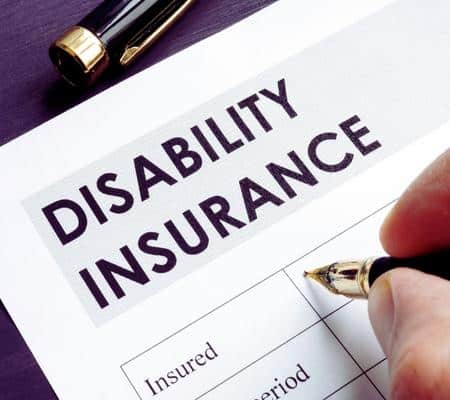
Insurance companies may use varying tactics to deny claims or limit the payouts they must provide. After suffering a disabling injury or illness, you depend on your insurance coverage for such situations to give you the benefits you need and have paid for. If you’ve been injured, you need to understand how disability insurance companies lie to deny claims.
As we all know, managing risk is how insurers make money. Do not be duped into accepting a meager settlement from your individual or group disability insurance provider or persuaded that you are not eligible for disability benefits.
How Disability Insurance Companies Lie to Deny Claims
The insurance sector is one of the biggest and richest industries in the US. Why?
Incorrectly delaying, denying, and terminating individual or group long-term disability benefits are often their specialties. The likelihood that your disability benefits will be abruptly and wrongfully terminated increases the more your long-term individual or group disability insurer must pay out.
However, long-term disability benefits for individuals or groups may continue until the age of normal retirement or, in the case of some individual policies, for life. This means that the risk analysis performed by your insurer for a small pool of employees can be offset by even one individual or group long-term disability claimant.
In addition to manipulating so-called independent medical reports and delaying and short-changing your claim evaluations, individual and group disability insurance firms frequently do the following other dishonest things:
Twisting Your Job Description
Based on your injuries, your insurance company may give a false account of your daily responsibilities, so you appear capable of carrying out your important job responsibilities or of doing another job they claim is identical to yours.
Surveillance Footage



Carpal tunnel syndrome prevents you from typing for eight hours daily. Because one of its investigators recorded a three-minute video of you holding an umbrella or your keys, your individual or group long-term disability insurance provider might argue otherwise.
Minimum Submission Standards
If your individual or group long-term disability insurance provider doesn’t request a lot of medical or financial information after you are granted benefits, don’t be fooled. You risk having your benefits wrongfully terminated if you don’t provide the most recent copies of your medical records, pharmacy receipts, and doctor’s statements in support of your ongoing benefits claim.
Exclusion Admissions
What may appear to be a cordial discussion about your military service with the representative of your individual or group disability insurance company may end in an incorrect denial or reduction of your benefits because the insurance company thinks you should have applied for benefits through the VA.
Do not forget that insurance is a for-profit industry, and you can sue an insurance company for denying a claim under the Unfair Claims Settlement Practices Act.
Your individual or group long-term disability insurer will frequently take any action it can to unfairly delay, deny, or terminate your payments if your legitimate disability claim hurts its financial position.
Deceptive Claim Denial Tactics
Some disability insurance providers believe that by rejecting the long-term disability claim, they will compel the applicant to start working again. The examiners of disability claims are instructed to send all accessible medical records to the contracted doctors for their opinions, which are subsequently adopted.
While the claims examiner is the one who eventually writes a rejection letter, in reality, most businesses’ claims examiners are little more than paper facilitators who ask hired doctors for their opinions at the expense of claimants.
The overwhelming majority of hired insurance company doctors are ignorant of the claimant’s line of work or the meaning of disability. Due to the hired insurance doctors’ ignorance and superficial reviews, there are excellent chances that a claimant will have their claim denied through an appeal or legal action.
The contracted insurance doctors only occasionally perform a full examination, frequently disregard medical records, and only give a cursory glance over the patient’s medical file. These negligent medical examinations give a claimant a solid chance to overturn a denial of disability.
Valid Reasons for Denying Insurance Benefit Claims
Most of the time, your insurance provider undoubtedly wants you to be happy with how your claim turned out. You are, after all, the client. Insurance premiums are paid for, and you can do business elsewhere.
However, the insurance company is also driven to turn a profit, and it does so by disbursing the least amount of money possible for each claim.
Here are a few typical explanations regarding when healthcare companies deny disability claims.
You Caused the Accident
It’s crucial to comprehend the conditions of your policy agreement with your insurance provider. Your insurance provider is not compelled to pay your claim if you engaged in actions that would have rendered your coverage void.
For instance, driving while intoxicated almost always invalidates insurance coverage, as does an accident involving an unlicensed driver using your automobile with your consent. The insurance provider won’t pay if you were at fault for something that was covered under the terms of your policy.
Your insurance provider might choose not to compensate you if you were breaking the law at the time of the accident. In addition to driving while intoxicated, this might be a problem if you were texting or using your phone in another way in a state where it’s against the law to do so.
However, it goes beyond deliberate wrongdoing. The insurance provider might decline to pay a claim if there were other ways you could have prevented the collision.
You Didn’t Get a Medical Check-Up
It’s critical to have a medical checkup as soon as possible after an accident. Some injuries take days or weeks to manifest themselves after an accident. It could be difficult to demonstrate that the collision caused your injuries without a prompt assessment of your health.
Most people who suffer serious injuries in an accident go to the hospital or a doctor. It’s critical that the hospital personnel note in your medical records that a motor vehicle collision caused your injuries.
The insurance may contest whether an injury occurred in the collision if you wait too long to have it examined and documented. The insurer may decline to pay for treatment if you are unable to demonstrate that the collision caused an injury.
You Lack a Recognized Injury
Even though an accident could leave you feeling scared and rattled, you probably won’t be able to get insurance to pay for medical care if a doctor doesn’t detect diagnosable damage.
Insurance is intended to cover your financial expenses related to an accident. For example, you might have whiplash or mild back discomfort after an accident, but you cannot claim compensation from insurance if no medical care is provided.
It could be challenging to convince the insurance provider that the accident caused a subsequent injury if you have a pre-existing ailment. It is conceivable for an accident to exacerbate or worsen a condition. Still, it might be difficult to tell whether the ailment was present before the accident or developed as a result of it.
The Claim Exceeds the Scope of Your Insurance
Make sure your policy meets or exceeds your requirements. What if you get into an accident with a driver who only has $50,000 in coverage, for instance, and your car is worth $100,000?
Unless you have uninsured motorist coverage, your claim can be rejected if that occurs.
Your claim will either be reimbursed up to your policy limits, or the insurance company may reject it if the losses you sustain exceed the limits of your own automobile policy.
Your insurance policy should cover every authorized driver in your home who plans to operate your vehicle. Auto insurance should also cover if you permit someone else to drive your vehicle, and they are involved in an accident. The backup coverage would be the other driver’s own insurance if they had it.
You would be responsible for the damages if the individual operating your vehicle has a valid driver’s license but no insurance, or if they don’t own a vehicle covered by insurance. The injured parties may file a personal injury claim against you for damages if the accident costs exceed the insurance policy’s maximum.
You Didn’t File in the Allowed Timeframe
After a collision, you have a duty to inform your insurance provider. After an accident, there are clear dos and don’ts for communicating with your insurance provider. However, you must always notify your insurance if an accident occurs. If your insurance company isn’t informed right away, it can argue that it wasn’t given a chance to look into the claim while the evidence was still strong.
A disability insurance attorney may help you understand how disability companies lie to deny claims and walk you through how to sue an insurance company for denying a claim.









